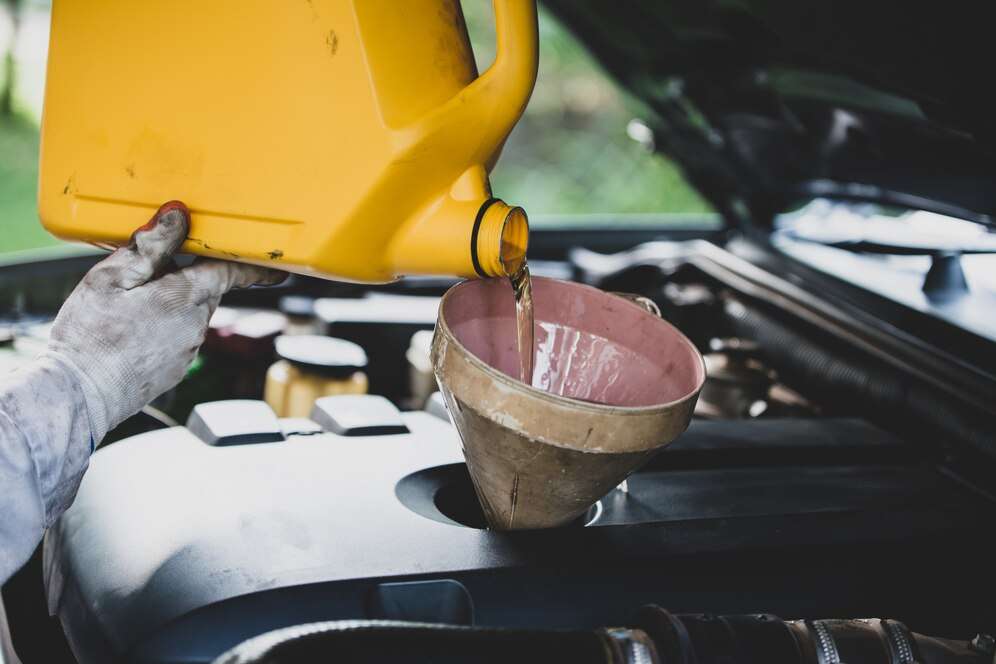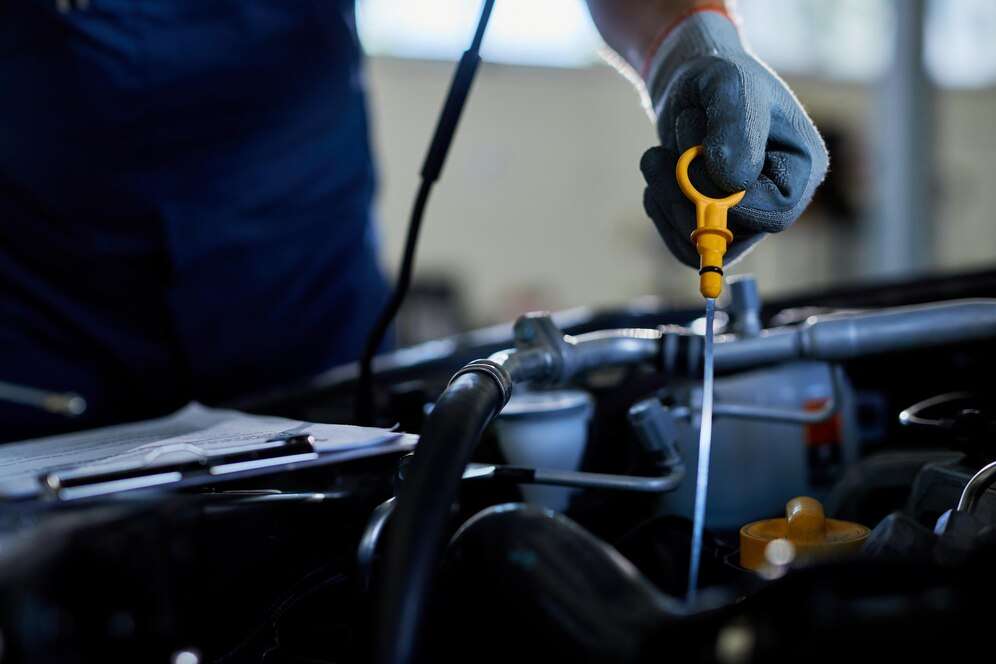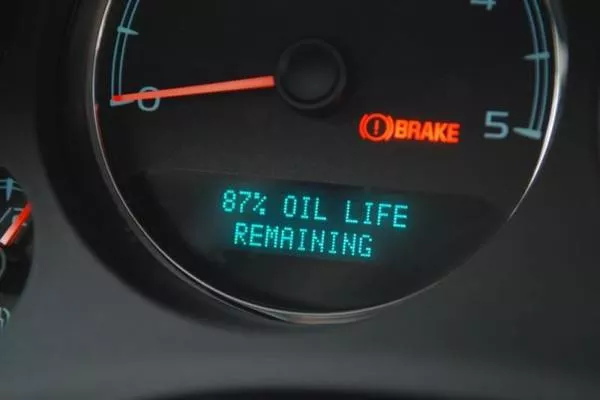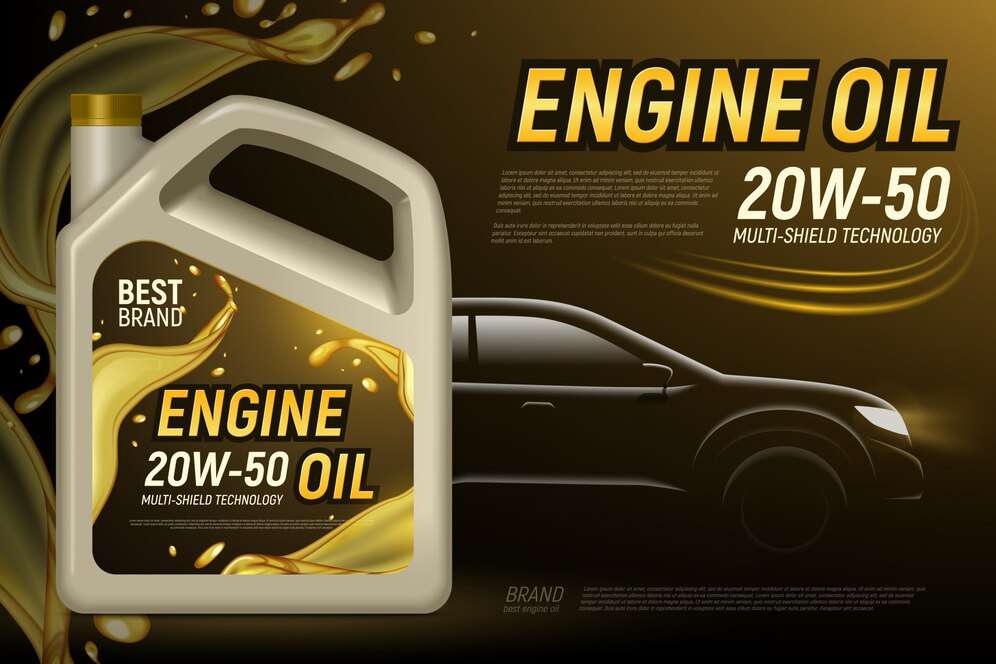How Regular Oil Changes Can Save Your Thousands in 2025
Taking care of your car might not always be at the top of your to-do list, but one small habit can save you thousands: regular oil changes. Engine oil plays a crucial role in keeping your car running smoothly by reducing friction, preventing overheating, and cleaning out dirt and debris.
Skipping oil changes may not seem like a big deal at first, but over time, old and dirty oil can cause severe engine damage, leading to expensive repairs or even a full engine replacement. In 2025, with rising maintenance costs and fuel prices, staying on top of oil changes is more important than ever.
In this blog, Drive UAE explores how regular oil changes can protect your engine.
Consequences of Neglecting Oil Changes
Engine oil plays a crucial role in keeping your car running smoothly, and neglecting it can result in a range of problems, from decreased performance to complete engine failure.
Here are the major consequences of not changing your oil regularly:
Increased Friction and Overheating
Oil lubricates the engine’s moving parts, reducing friction and preventing excessive heat buildup. When oil becomes old and dirty, it loses its ability to provide proper lubrication. This causes metal components to grind against each other, generating more heat and leading to overheating. Overheated engines can suffer from warped parts, blown gaskets, and even complete failure.

Sludge and Blockages
Over time, oil collects dirt, carbon deposits, and other contaminants. If not changed regularly, these impurities turn into thick sludge, which clogs vital engine components. This restricts oil flow, preventing it from reaching critical areas and leading to increased wear and tear. A clogged engine can suffer from reduced performance, misfires, and even total breakdowns.
Increased Fuel Consumption
When engine oil is dirty or low, the engine has to work harder to compensate for the lack of lubrication. This added strain reduces fuel efficiency, causing your car to burn more gas than usual. As a result, you’ll find yourself spending more money at the pump just because of neglected oil changes.
Wear and Tear on Engine Components
Without fresh oil, engine parts experience excessive friction, leading to accelerated wear and tear. Pistons, camshafts, and bearings are especially vulnerable. Over time, these components can suffer irreversible damage, requiring costly repairs or replacements.
In extreme cases, a neglected engine may need to be completely rebuilt or replaced, which can cost thousands.
Risk of Engine Failure
Perhaps the most severe consequence of skipping oil changes is total engine failure. When oil levels drop too low or the oil becomes too contaminated, the engine may seize up. A seized engine means your vehicle will no longer run, and the only solution might be an expensive engine replacement.
In some cases, the repair costs may be so high that replacing the entire car is a more practical option.

Voiding Your Vehicle Warranty
Many car manufacturers require regular oil changes as part of their warranty conditions. If you fail to follow the recommended maintenance schedule, you may void your warranty, leaving you responsible for any costly repairs that result from oil neglect.
Recommended Oil Change Intervals in 2025
Keeping up with regular oil changes is essential for maintaining your vehicle’s performance and avoiding costly repairs. But how often should you change your oil? The recommended interval depends on factors such as your car’s make and model, the type of oil you use, and your driving habits.
Here’s what you need to know about oil change intervals in 2025.
General Guidelines for Oil Changes
Conventional Oil: Typically, cars using conventional oil need an oil change every 3,000 to 5,000 miles (or every 3 to 6 months).
Synthetic Blend Oil: Vehicles using synthetic blend oil can usually go 5,000 to 7,500 miles before requiring an oil change.
Full Synthetic Oil: High-performance engines and newer vehicles using full synthetic oil may only need an oil change every 7,500 to 10,000 miles (or once a year, depending on usage).

Factors That Affect Oil Change Frequency
While these are general recommendations, some factors may require you to change your oil more frequently:
- Driving Conditions: If you frequently drive in extreme temperatures (hot or cold), dusty environments, or heavy traffic, your engine may require more frequent oil changes.
- Short Trips & Stop-and-Go Driving: If you mainly take short trips where the engine doesn’t fully warm up, oil degrades faster, requiring more frequent changes.
- Towing & Heavy Loads: If you tow trailers or carry heavy loads, your engine works harder, meaning oil changes should happen more often.
- Older Vehicles: Older engines may burn oil faster and require changes sooner than newer models.
Checking Your Car’s Manual for Specific Intervals
Every vehicle is different, and the best way to determine the right oil change interval is by checking your owner’s manual. Manufacturers provide specific recommendations based on the engine design and performance requirements. Following these guidelines will help extend your engine’s lifespan and keep your warranty valid.

Modern Oil Monitoring Systems
Many newer cars in 2025 come equipped with oil life monitoring systems that track engine conditions and driving habits. These systems alert you when it’s time for an oil change, taking the guesswork out of maintenance. However, it’s still important to check your oil level regularly and not rely solely on the system.

Additional Tips for Cost-Effective Maintenance
Here are some cost-effective tips.
- Use High-Quality Oil & Filters: Invest in synthetic oil and premium filters for better engine protection and longer intervals between changes.
- Check Oil Levels Regularly: Monitor your oil level and condition every few weeks to prevent engine damage.
- Follow Maintenance Schedule: Stick to your car’s recommended service plan to avoid costly repairs.
- Look for Oil Change Discounts: Take advantage of promotions, coupons, or loyalty programs at service centers.
- Learn Basic DIY Maintenance: Changing oil, replacing air filters, and checking fluids yourself can save money.
- Drive Smoothly: Avoid harsh acceleration and braking to reduce engine stress and improve oil efficiency.

Conclusion
Regular oil changes are one of the simplest and most cost-effective ways to protect your vehicle and avoid expensive repairs. Clean oil keeps your engine running smoothly, improves fuel efficiency, and prevents costly damage caused by friction, overheating, and sludge buildup.
By following the recommended oil change intervals, using high-quality oil, and staying on top of basic maintenance, you can extend your car’s lifespan and save thousands in 2025.

